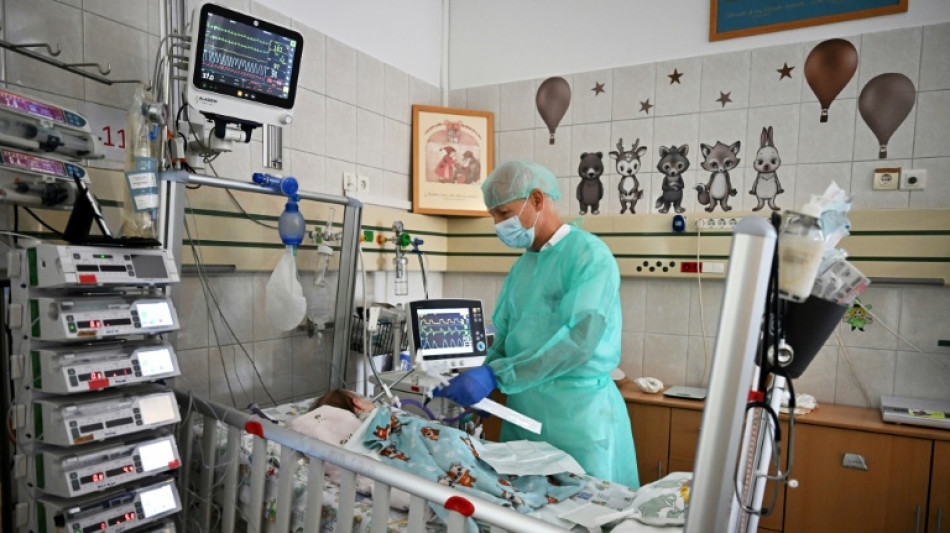
-
 Australia all out for 152 as England take charge of 4th Ashes Test
Australia all out for 152 as England take charge of 4th Ashes Test
-
Boys recount 'torment' at hands of armed rebels in DR Congo

-
 Inside Chernobyl, Ukraine scrambles to repair radiation shield
Inside Chernobyl, Ukraine scrambles to repair radiation shield
-
Bondi victims honoured as Sydney-Hobart race sets sail

-
 North Korea's Kim orders factories to make more missiles in 2026
North Korea's Kim orders factories to make more missiles in 2026
-
Palladino's Atalanta on the up as Serie A leaders Inter visit

-
 Hooked on the claw: how crane games conquered Japan's arcades
Hooked on the claw: how crane games conquered Japan's arcades
-
Shanghai's elderly waltz back to the past at lunchtime dance halls

-
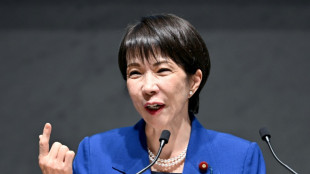 Japan govt approves record 122 trillion yen budget
Japan govt approves record 122 trillion yen budget
-
US launches Christmas Day strikes on IS targets in Nigeria

-
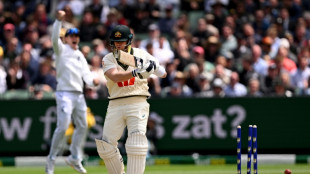 Australia reeling on 72-4 at lunch as England strike in 4th Ashes Test
Australia reeling on 72-4 at lunch as England strike in 4th Ashes Test
-
Too hot to handle? Searing heat looming over 2026 World Cup

-
 Packers clinch NFL playoff spot as Lions lose to Vikings
Packers clinch NFL playoff spot as Lions lose to Vikings
-
Guinea's presidential candidates hold final rallies before Sunday's vote

-
 Eon Prime Intelligent Alliance Office Unveils New Brand Identity and Completes Website Upgrade
Eon Prime Intelligent Alliance Office Unveils New Brand Identity and Completes Website Upgrade
-
Villa face Chelsea test as Premier League title race heats up

-
 Spurs extend domination of NBA-best Thunder
Spurs extend domination of NBA-best Thunder
-
Malaysia's Najib to face verdict in mega 1MDB graft trial
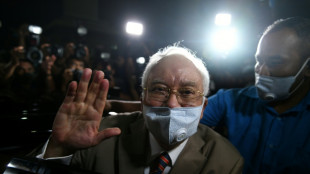
-
 King Charles calls for 'reconciliation' in Christmas speech
King Charles calls for 'reconciliation' in Christmas speech
-
Brazil's jailed ex-president Bolsonaro undergoes 'successful' surgery

-
 UK tech campaigner sues Trump administration over US sanctions
UK tech campaigner sues Trump administration over US sanctions
-
New Anglican leader says immigration debate dividing UK

-
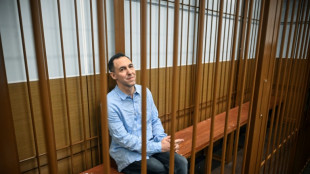 Russia says made 'proposal' to France over jailed researcher
Russia says made 'proposal' to France over jailed researcher
-
Bangladesh PM hopeful Rahman returns from exile ahead of polls

-
 Police suspect suicide bomber behind Nigeria's deadly mosque blast
Police suspect suicide bomber behind Nigeria's deadly mosque blast
-
AFCON organisers allowing fans in for free to fill empty stands: source

-
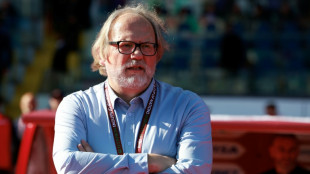 Mali coach Saintfiet hits out at European clubs, FIFA over AFCON changes
Mali coach Saintfiet hits out at European clubs, FIFA over AFCON changes
-
Last Christians gather in ruins of Turkey's quake-hit Antakya

-
 Pope Leo condemns 'open wounds' of war in first Christmas homily
Pope Leo condemns 'open wounds' of war in first Christmas homily
-
Mogadishu votes in first local elections in decades under tight security

-
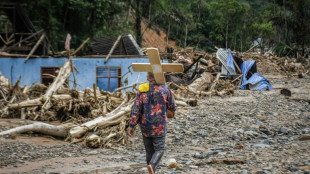 'Starting anew': Indonesians in disaster-struck Sumatra hold Christmas mass
'Starting anew': Indonesians in disaster-struck Sumatra hold Christmas mass
-
Cambodian PM's wife attends funerals of soldiers killed in Thai border clashes

-
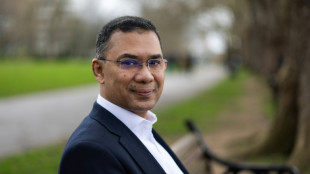 Prime minister hopeful Tarique Rahman arrives in Bangladesh: party
Prime minister hopeful Tarique Rahman arrives in Bangladesh: party
-
Pacific archipelago Palau agrees to take migrants from US
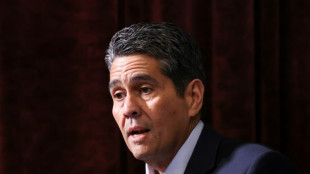
-
 Pope Leo expected to call for peace during first Christmas blessing
Pope Leo expected to call for peace during first Christmas blessing
-
Australia opts for all-pace attack in fourth Ashes Test

-
 'We hold onto one another and keep fighting,' says wife of jailed Istanbul mayor
'We hold onto one another and keep fighting,' says wife of jailed Istanbul mayor
-
North Korea's Kim visits nuclear subs as Putin hails 'invincible' bond

-
 Trump takes Christmas Eve shot at 'radical left scum'
Trump takes Christmas Eve shot at 'radical left scum'
-
3 Factors That Affect the Cost of Dentures in San Antonio, TX

-
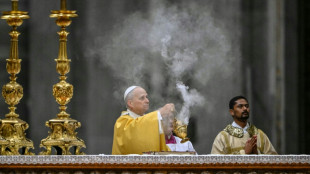 Leo XIV celebrates first Christmas as pope
Leo XIV celebrates first Christmas as pope
-
Diallo and Mahrez strike at AFCON as Ivory Coast, Algeria win

-
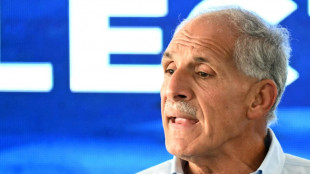 'At your service!' Nasry Asfura becomes Honduran president-elect
'At your service!' Nasry Asfura becomes Honduran president-elect
-
Trump-backed Nasry Asfura declared winner of Honduras presidency
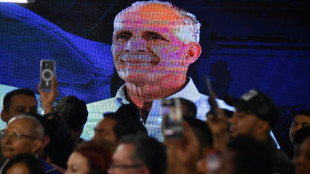
-
 Diallo strikes to give AFCON holders Ivory Coast winning start
Diallo strikes to give AFCON holders Ivory Coast winning start
-
Spurs captain Romero facing increased ban after Liverpool red card

-
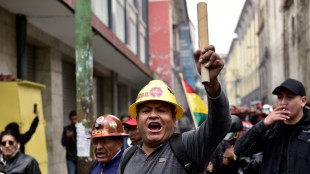 Bolivian miners protest elimination of fuel subsidies
Bolivian miners protest elimination of fuel subsidies
-
A lack of respect? African football bows to pressure with AFCON change

-
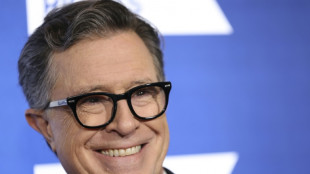 Trump says comedian Colbert should be 'put to sleep'
Trump says comedian Colbert should be 'put to sleep'
-
Mahrez leads Algeria to AFCON cruise against Sudan


EU appointment shows up Hungary's struggling health service
The European Union's decision to name a Hungarian as its health commissioner has raised eyebrows in his country, which itself has crumbling hospitals and no health minister.
The nomination of Oliver Varhelyi, an ally of Hungary's nationalist ruling party, to the health portfolio in the bloc's new executive commission last week cast a harsh spotlight on the country's own much-criticised public health system.
"If the goal is to help the member states of the European Union with ideas to destroy the health sector, to ransack it... then it was a great idea" to nominate Varhelyi, Zoltan Tarr, an EU lawmaker from Hungary's opposition, told local media.
Hungary's public health system has been under scrutiny since opposition leader Peter Magyar -- a former ally turned critic of Prime Minister Viktor Orban -- started touring hospitals this summer to denounce their "deplorable" conditions.
Magyar accuses Orban of "systematically underfunding and dismantling public healthcare" by getting rid of the health ministry to save money shortly after he returned to power in 2010.
Hungary spent only 4.4 percent of its GDP on health in 2022, a smaller share than any other EU country, Eurostat figures show.
"Unfortunately... successive governments have not treated health as a priority," the head of the country's Hospital Association, Gyorgy Velkey, told AFP.
- No water, no air con -
Surveys show the quality of healthcare is one of the Hungarian public's biggest concerns. Complaints from patients proliferate on social media.
From the lack of basic sanitary items to crumbling facilities, the list of complaints is almost as long as the notorious waiting lists for specialist care.
In one Facebook post from last month, a father deplored the state of the hospital in which his son, in his 30s, died of thrombosis.
"There was no air conditioning in the ICU. We had no light in the bathroom outside the ICU, and we were using our phone to get some light. There was no toilet seat and no water," Laszlo, who asked not to be identified by his full name, told AFP.
Many patients say they turn to private providers to get better and faster medical care.
Szilvia, 32, who did not want to be identified by her full name, paid the equivalent of 3,000 euros ($3,350) to give birth to her second child in a private hospital after a "traumatic birth experience" with her first-born.
Experts say many of the difficulties predate Orban's return to office, as healthcare systems across Europe are struggling with ageing populations and shortages of workers.
But the nationalisation of municipal hospitals in 2011-2012 exacerbated the problems, leading to inefficiency and indebtedness, according to Eszter Sinko, an economist specialising in the topic.
"There are some well-functioning hospitals, clinics and GPs, but the system performs poorly overall," Sinko told AFP.
Medical professionals and staff -- who spoke to AFP on condition of anonymity -- also painted a dire picture.
Medical workers are generally "overwhelmed and burned out", partly due to staff shortages, said one paramedic in Budapest with more than 10 years of experience.
A 68-year-old specialist assistant at a Budapest hospital complained about working without air conditioning in temperatures up to 32 degrees Celsius (90 degrees Fahrenheit) during the summer heat.
And "bedsheets instead of curtains" were hung up to cover windows, a cleaner at the same facility said.
"If a high-ranking visitor or an inspection comes, we quickly gather up supplies and equipment and bring them to the given ward to show that everything is fine," she told AFP.
- 'Smear campaign' -
Journalists are seldom permitted to do reports or interviews at hospitals -- and were barred altogether during the Covid-19 pandemic, when Hungary suffered one of the highest mortality rates in the EU.
Only one of the eight hospitals visited by Magyar granted access to an AFP photographer.
Following reports of failing air conditioners amid the summer's scorching heatwaves, Magyar spent August visiting hospitals -- armed with a digital thermometer and cameras.
Videos of his visits were viewed by hundreds of thousands of people on Facebook.
The government accused him of "misrepresenting the situation" and conducting a "smear campaign".
Orban, in a rare press conference early this month, defended his record on healthcare, pointing to rising salaries and other improvements.
"Every year we are making progress in healthcare, too. Of course, our work is not yet finished," he said.
F.Pedersen--AMWN


